Dan Simon
Towards Robust State Estimation by Boosting the Maximum Correntropy Criterion Kalman Filter with Adaptive Behaviors
Mar 29, 2021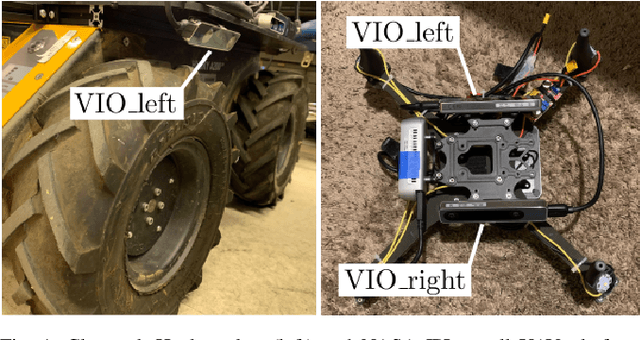
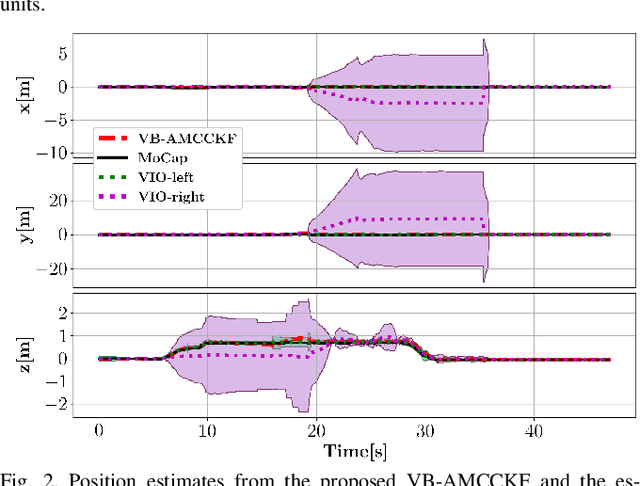
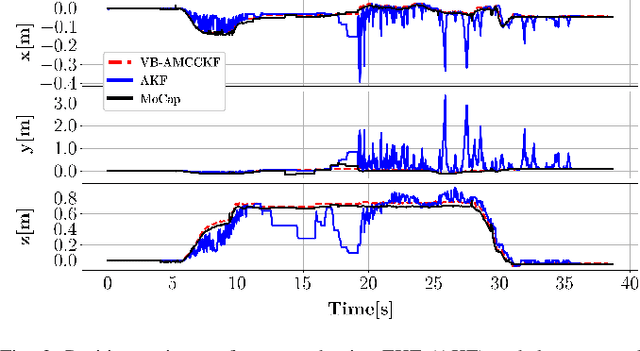
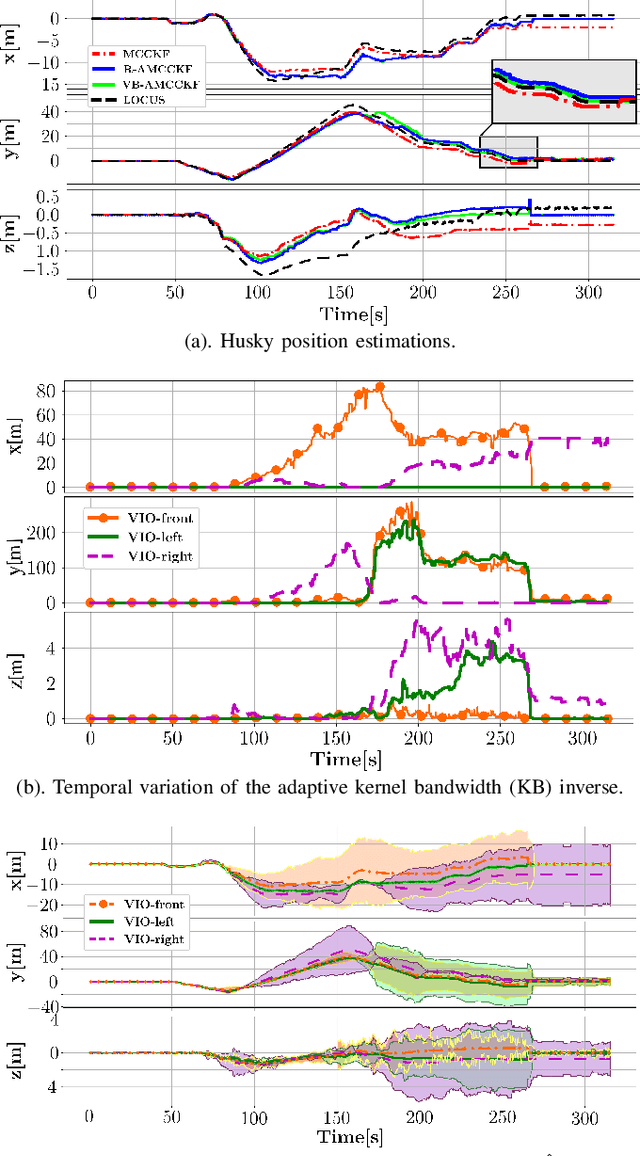
Abstract:This work proposes a resilient and adaptive state estimation framework for robots operating in perceptually-degraded environments. The approach, called Adaptive Maximum Correntropy Criterion Kalman Filtering (AMCCKF), is inherently robust to corrupted measurements, such as those containing jumps or general non-Gaussian noise, and is able to modify filter parameters online to improve performance. Two separate methods are developed -- the Variational Bayesian AMCCKF (VB-AMCCKF) and Residual AMCCKF (R-AMCCKF) -- that modify the process and measurement noise models in addition to the bandwidth of the kernel function used in MCCKF based on the quality of measurements received. The two approaches differ in computational complexity and overall performance which is experimentally analyzed. The method is demonstrated in real experiments on both aerial and ground robots and is part of the solution used by the COSTAR team participating at the DARPA Subterranean Challenge.
A multi-objective optimization framework for on-line ridesharing systems
Dec 07, 2020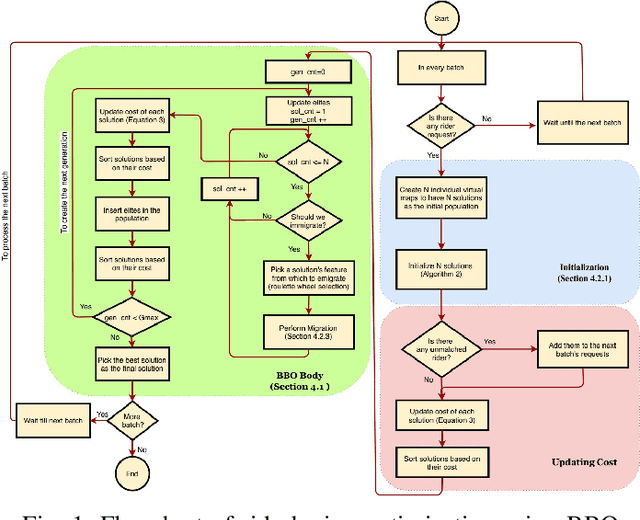
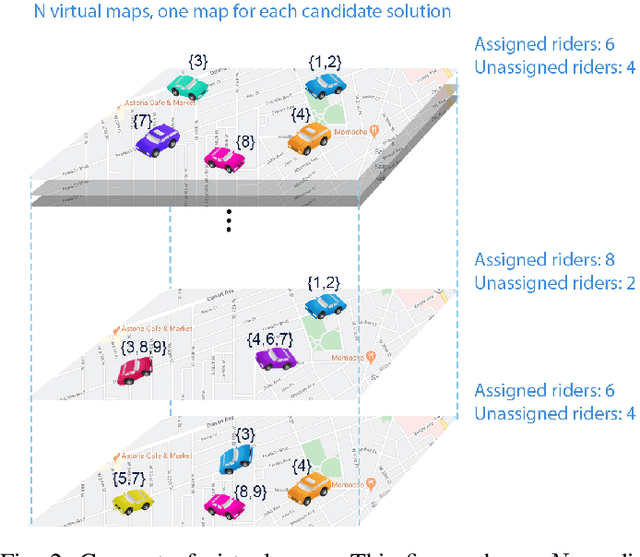
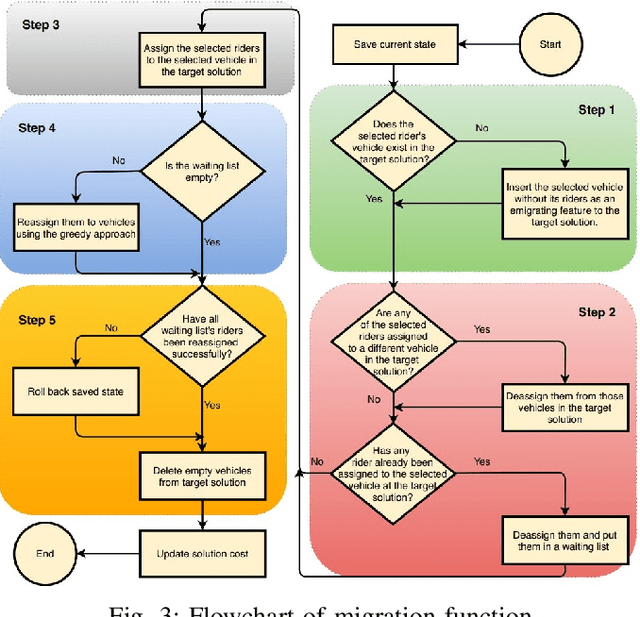
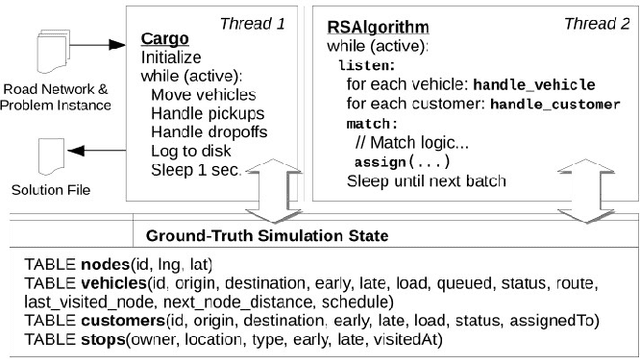
Abstract:The ultimate goal of ridesharing systems is to matchtravelers who do not have a vehicle with those travelers whowant to share their vehicle. A good match can be found amongthose who have similar itineraries and time schedules. In thisway each rider can be served without any delay and also eachdriver can earn as much as possible without having too muchdeviation from their original route. We propose an algorithmthat leverages biogeography-based optimization to solve a multi-objective optimization problem for online ridesharing. It isnecessary to solve the ridesharing problem as a multi-objectiveproblem since there are some important objectives that must beconsidered simultaneously. We test our algorithm by evaluatingperformance on the Beijing ridesharing dataset. The simulationresults indicate that BBO provides competitive performancerelative to state-of-the-art ridesharing optimization algorithms.
 Add to Chrome
Add to Chrome Add to Firefox
Add to Firefox Add to Edge
Add to Edge